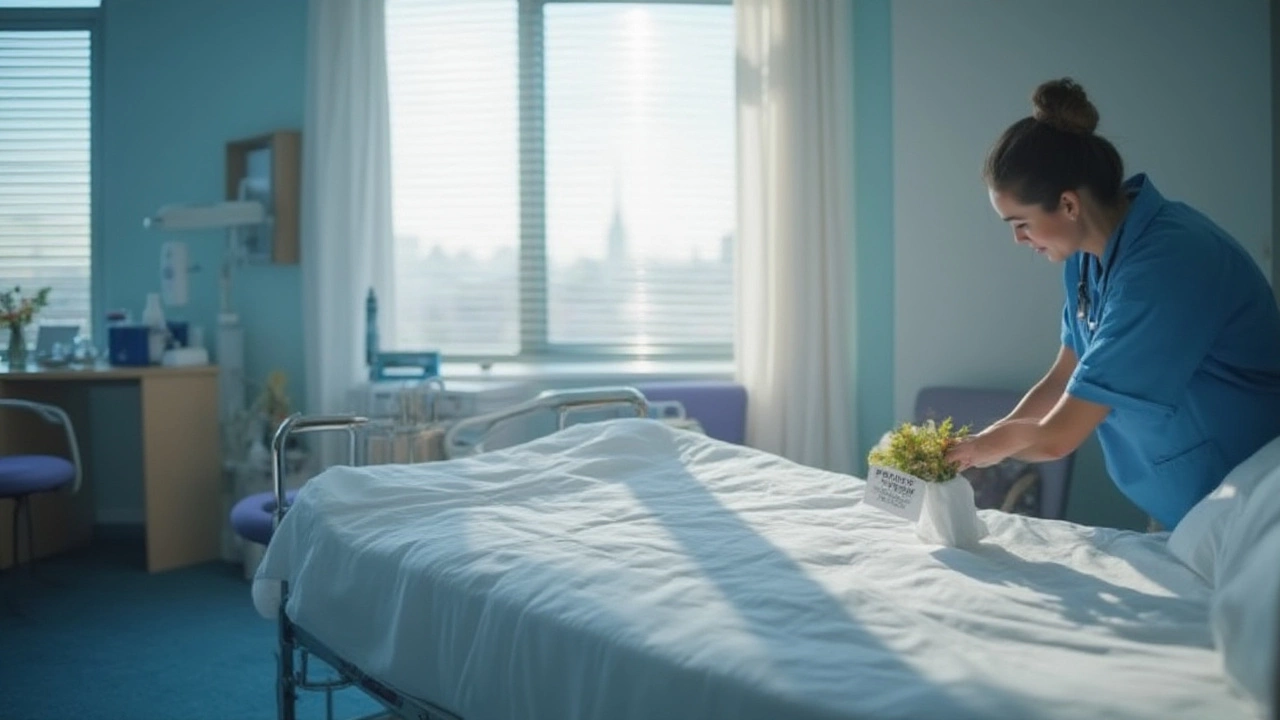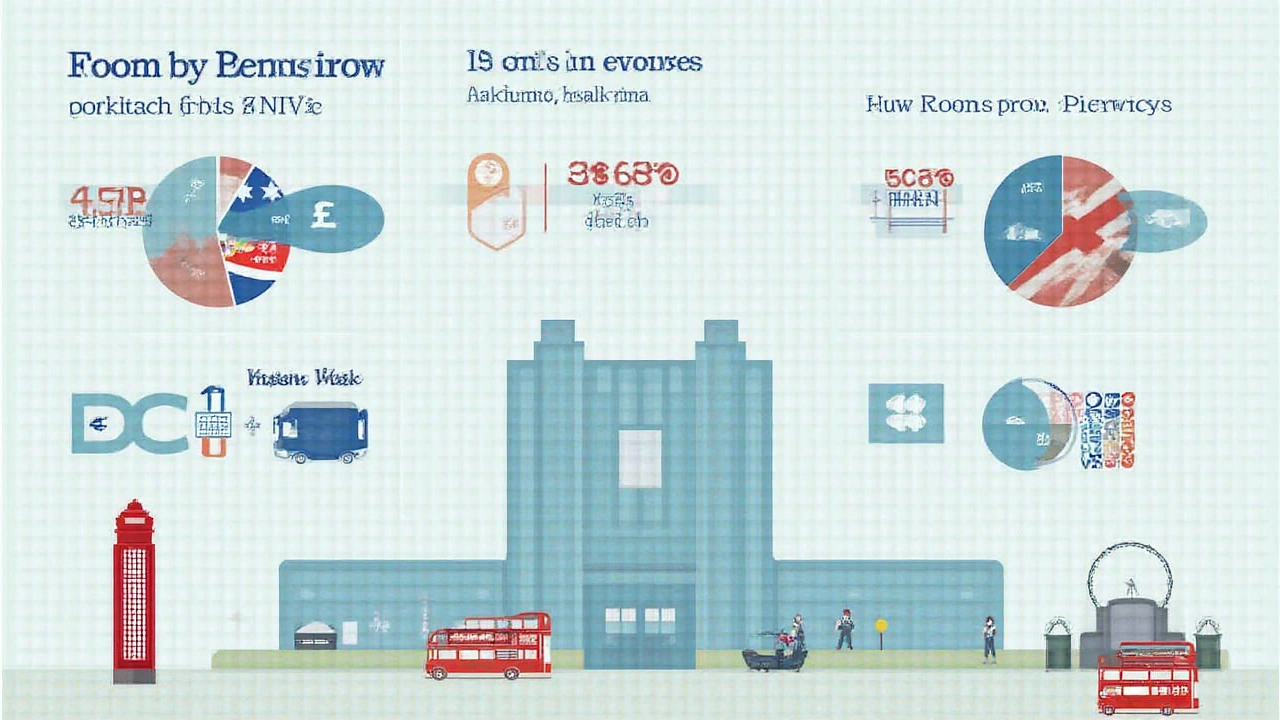Imagine lying in a busy NHS hospital, the curtains never quite closing out the chatter, the swirl of nurses and patients never quite letting you sleep. The idea of a quiet, private room can be pretty tempting, right? Loads of people think private rooms are a standard perk—just flash your wallet and voilà, your own space. But is it actually that simple?
How NHS Hospital Rooms Work: The Basics
At its core, the NHS is designed to provide care based on clinical need rather than ability to pay. Most NHS patients recover in shared wards, not private rooms. While there are single rooms, they’re usually called “side rooms” or “isolation rooms,” and these get assigned for strict medical reasons—think infection control, vulnerable patients, or end-of-life care. So it’s absolutely not first come, first served for those who simply want more privacy.
If you’ve ever wandered the maze of an NHS hospital, you may have glimpsed some private rooms. But most of the time, these aren't “up for grabs” just because you fancy quiet. Hospitals have to balance patient safety, infection risks, and service fairness before privacy even comes into play. Hospital staff will often tell you: if your medical case doesn’t demand it, you probably won’t just get a private space on request.
Here's a quick look at NHS hospital accommodation, based on data from 2023:
| Room Type | Purpose | Availability (%) |
|---|---|---|
| Shared Ward Bay | Standard recovery | 71% |
| Single/Special Side Room | Infection control, vulnerable patients | 23% |
| Private/Payable Room | Paid/Exceptional cases | 6% |
Your best shot at a single room on the NHS? Have a clinical reason or, sometimes, be in maternity care, where some hospitals put more resources into family-friendly private spaces.
Can You Actually Pay for a Private Room?
So here's the big question. Is there an option to hand over some money and get a private room—just like you might in a hotel or a private hospital? The answer: sometimes, but not always, and it depends massively on local policies.
NHS hospitals are allowed to charge for “amenity beds”—that’s the official lingo for private rooms you pay for. But let’s bust a myth right now: most NHS hospitals don’t always have these on tap. Even if you’ve got the cash, empty rooms can be rare. A lot of people phone up to ask and get told politely, “Sorry, we can’t guarantee it.”
Here’s what usually needs to line up if you’re hoping to pay for a private room:
- The hospital actually has spare side rooms not needed for clinical reasons
- There’s a formal policy for charging (not every hospital has one)
- The doctor in charge of your care agrees you’re fit to go into a private space
- You pay the fee, usually up front
The cost? It’s not exactly cheap. As of early 2024, daily fees typically ranged from £75 to over £350 depending on where you are. London hospitals tend to be on the pricier end. Most of these rooms don’t come with plush “hotel-style” extras, just a bit of privacy and maybe an en suite bathroom if you’re lucky.
Here's a snapshot of amenity bed charges from a few NHS trusts (you won't always find this info easily):
| Hospital Trust | Fee Per Night (£) |
|---|---|
| Manchester University NHS Foundation Trust | 150 |
| Guy's and St Thomas' NHS Foundation Trust | 350 |
| Oxford University Hospitals NHS Foundation Trust | 120 |
Remember, paying doesn’t fast-track your care. You'll get the same treatment as everyone else on the NHS, minus (hopefully) the snoring of a neighbour. It won’t let you jump waiting lists, handpick surgeries, or demand extra nursing staff. NHS rules are strict on that. You’re paying for privacy, not priority.

NHS Private Patient Units Explained
Private Patient Units (PPUs) are like “mini private hospitals” set inside major NHS hospitals. These units operate independently from the main NHS service, sometimes under separate branding. You might get the same top doctors, but you’re paying for a totally private package—single room, managers helping with admin, menus, and, yes, a bill at the end.
If you want a guaranteed private room, this is where it happens. But the catch? You have to go all in. This means either being a fully private patient, paying for your whole stay and treatment, or using private health insurance that covers NHS PPUs. If you’re thinking, “But what if I want just a private room, not private care?”—PPUs won’t really suit. They’re not like hotels where you tack on ‘room upgrades’ to your standard NHS treatment.
PPU prices are usually much steeper than amenity bed charges. A routine operation, plus a few nights in a private room via PPU, can easily run to several thousand pounds. These prices are clearly displayed on dedicated PPU websites. You’ll also find that doctors split their time between NHS and private work—so no, you’re not ‘stealing resources’; you’re just accessing a different service run in parallel.
If you’ve got private insurance, check your policy carefully. Many only pay for full private care, not just ‘room upgrades’ in standard NHS hospitals. Some insurers even have special deals with certain NHS hospitals, but this is still a bit of a postcode lottery across the UK.
What To Do If You Really Want a Private Room
Now, suppose you’re heading for a scheduled NHS hospital stay and you’re craving a bit of peace during your recovery. Here’s what you can try:
- Ask your consultant or hospital’s Patient Advice and Liaison Service (PALS) if amenity beds are available in advance. Some hospitals keep a waiting list specifically for these rooms.
- Be upfront about what matters to you. If you’ve got real worries about privacy affecting your recovery (like severe anxiety, religious reasons, or complex family needs), flag them early. They might not guarantee you a spot, but compassion sometimes trumps policy.
- Check the hospital website for policies and price lists. A handful of Trusts put this information online, though you may have to dig. If there’s no info, phone admissions or PALS directly.
- If your need is clinical, document it. For example, if your immune system is weak and you’re vulnerable to infection, your medical team should put you on the list for a side room for medical—not financial—reasons.
- If you’re open to going fully private, contact the PPU directly for self-funding details. Remember, this route is a whole new ball game in terms of cost.
One tip: Don’t leave the conversation until the last minute. Private rooms can get booked quickly or withdrawn if a priority patient needs them.
And yes, it’s the private room NHS hospital policies that determine what’s possible—not just your wallet.

Tips, Myths, and Interesting Realities About NHS Private Rooms
Think you’ll get luxury perks if you pay for a private room? The reality is a bit less glamorous. Don’t expect three-course meals, fluffy robes, or room service. Most NHS private rooms are just regular hospital rooms that happen to sleep only one person. You’ll still have to wear those fetching gowns and likely get woken at 6 am for vital checks.
Here are a few facts that might surprise you:
- About 20% of NHS hospitals in England offered amenity beds as of 2024, with uptake highest in maternity wards. If you're about to give birth, your odds of privacy are best there.
- Demand for private rooms shot up after Covid-19, as hospitals focused on infection control. But this also made side rooms scarcer for non-medical cases, not more available.
- The NHS can—and sometimes does—withdraw a private room with little notice if your space is medically needed by another patient. Refunds for any unused nights are usually given, but it’s still a disappointment if you’ve arranged for visitors or support.
- If your stay turns into an emergency (for example, you need intensive care), you’ll be moved and re-allocated on medical grounds, not payment status.
- Some NHS charities campaign for more transparency on how amenity beds are allocated and whether fees are fair. There’s still quite a bit of postcode variability, so what’s possible at one Trust could be impossible at another.
Want one last tip? If privacy is absolutely essential and you can’t afford full private care, consider flexible discharge options. Some people ask to go home for recovery if medically safe, then bring in community nurses. It’s not perfect, but for many, home is far more peaceful than a bustling NHS ward even with a private room thrown into the mix.
So, can you pay for a private room in an NHS hospital? The answer really is: sometimes, with effort and patience. But privacy isn’t always for sale, and even with cash in hand, there’s no guarantee your stay will feel private—or fancy—by hotel standards.




